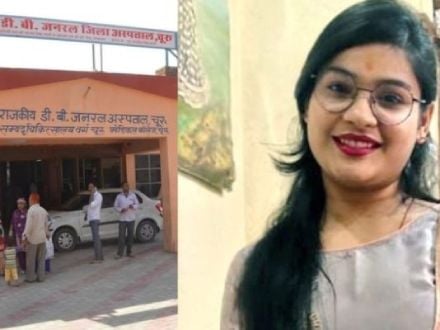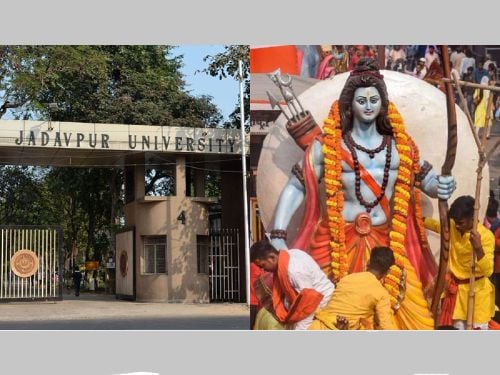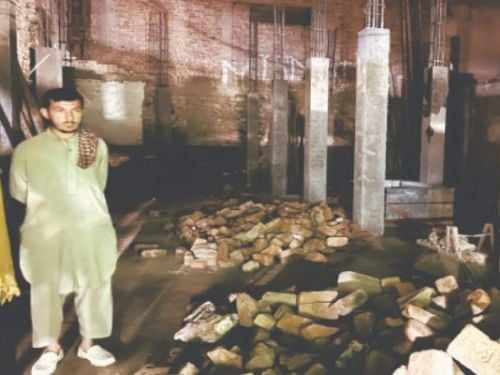There are some rules even for entry at ‘public places’ and the same applies for temples also ! Entry in some temples have rules set as per Dharmashastra and they should be followed by all, is the feeling of devout Hindus ! – Editor, Hindujagruti

New Delhi : In its first preliminary observations on a rule barring women from entering the Sabarimala temple in Kerala due to biological reasons, the Supreme Court on Wednesday said women have the constitutional right of equal access to public places of worship to pray. Any rule that stood in their way would be against this right, the apex court said. (If this is the case, will Hon. Supreme Court also ask mosques to allow entry of women as ‘mosques may also be considered as public place’ ? – Editor, Hindujagruti)
A five-judge bench, led by CJI Dipak Misra, is hearing petitions demanding an end to this discriminatory practice which the temple management claims is essential to the religious practice of the followers of Lord Ayappa. The management is yet to present its arguments before the five-judge bench. (Actually Hindus feel that SC should not hear such type of petition, which meddle in religious affairs. SC should consult Shankaracharyas and Dharmagurus of Hindus to decide on such issues ! – Editor, Hindujagruti)
However, to avoid conceding this right to all women, it has earlier staked claim on the grounds of being a separate denomination. The temple has claimed that this was a custom followed in the temple whose presiding deity is a “bachelor”. The state had backed the temple management’s stand earlier, prompting the high court to uphold the restriction.
This is the second round of litigation in which an association, comprising young lawyers, is seeking this right for women on the grounds of gender equality guaranteed under the Constitution. Kerala made its stand clear in court on Wednesday through senior advocate Jaideep Gupta. Senior advocate Indira Jaising argued that the right to religion enshrined in Article 25 of the Constitution spoke only of “persons” and protects individuals and not institutions or temples.
She argued the discrimination based on the presumption that women between 10 and 55 have their menarche and were hence impure was a manifestation of “untouchability” in another form. This was against Article 17 of the Constitution which forbids untouchability in any form, she said. She urged the court to extend the rules permitting Harijans to enter all places of public worship to women as well. Justice RF Nariman and DY Chandrachud cautioned her against arguing only on the plank of untouchability. Article 25, Justice Nariman, said speaks of all persons –– that includes women and their fundamental right to worship. “It is a constitutional right,” he said. “A woman is equally entitled to pray in a place of public worship.” CJI Misra hinted that the bench may strike down a notification barring women from entering a place of worship to pray. “If we strike down the law, they may change the law,” the CJI observed. “Women will go where men are allowed to go to pray,” the CJI said.
Source : Economic Times

 Rajasthan: Woman found hanging at a beauty parlour, Arshad, 3 others booked
Rajasthan: Woman found hanging at a beauty parlour, Arshad, 3 others booked Jadavpur Univ revokes permission to celebrate Ram Navami on campus after granting it
Jadavpur Univ revokes permission to celebrate Ram Navami on campus after granting it Chhattisgarh: Naxal top commander along with 28 other Naxals killed in a joint operation
Chhattisgarh: Naxal top commander along with 28 other Naxals killed in a joint operation Andhra Pradesh: Farooq kills mentally challenged Hindu man for insurance money
Andhra Pradesh: Farooq kills mentally challenged Hindu man for insurance money Pakistan: Ancient Hindu temple in Khyber Pakhtunkhwa demolished for commercial complex
Pakistan: Ancient Hindu temple in Khyber Pakhtunkhwa demolished for commercial complex 2 ISIS terrorists arrested in Germany for sexual abuse of minor Yazidi children
2 ISIS terrorists arrested in Germany for sexual abuse of minor Yazidi children